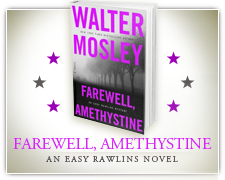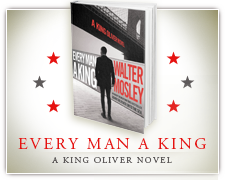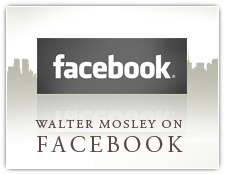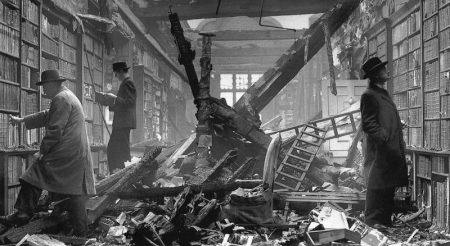Walter Mosley: Enough with the Victors Writing History
They burn whatever and whoever disagrees with our conception of the world
September 5, 2108
By Walter Mosley
LitHub.com
For more than 15 years I’ve been working on a novel called John Woman. You might say that I’ve been pondering this idea my entire adult life, ever since I enrolled at the radical arts institution, Goddard College, up in Vermont.
The concept was simple: if you control the idea of history, the content of what people think has come before, then you have access to the near-absolute power associated with that knowledge. Revolutionary political institutions and conquerors have claimed that supremacy down the ages by eradicating any contrary data existing in schools, libraries, languages, religions, and even entire cultures.
For those in power this manipulation was simply executed: you burned whatever and whoever disagreed with your conception of the world. You fired teachers whose minds were tainted by the dead hands of the past. You banned religions and books, burned entire libraries, and made sure that your people ran, regulated, and bankrolled those institutions of knowledge that carried the stories of a carefully fabricated and agreed upon past.
You co-opted the language, tore down past heroes, made shit up—anything to prove that you, your people, your made up history was the only truth.
Once that system of knowledge was ensconced there dawned an age of belief, creating an entire population that espoused and deeply loved a system of truths wrought by prestidigitation just half a century before.
In the current world so-called white men, descended from Europe, have crafted our understanding of history. Using the modern-day weapons of capitalism and war-time technology they have dismissed diasporic Blacks, Indigenous New Worlders, women and the monoliths of Asia, Africa and the Middle East. Entire dynasties were eradicated. The number of genders was winnowed down to about one and a half.
“If you deny your past your future will be a detour around your fondest hopes and dreams.”
That’s real power. When you can eliminate or paralyze identity, make your enemies’ cultures either nonexistent or criminal then you’ve done one better than genocide—you’ve made it so that not only is your enemy gone, she never even existed.
That’s real power; the second greatest power in humanity’s drive to control that which they can never fully comprehend, history… the greatest power is encapsulated in the white man’s white man’s poet, T.S. Eliot when he penned, “In my beginning is my end.”
*
I have studied the great powers that vie to control what they want us to believe about the past; but I don’t identify with them. I identify with the librarians who, when asked by GW Bush to report on their visitors’ reading habits, held up a hand and said, “First Amendment.” I identify with outsider artists and labor organizers and autodidacts who either refuse to or are unable to believe in the lies foisted upon us by the conquerors. I identify with the belief that there exists a history out there just beyond the reach of our powers of cognition. And I believe that a lie is a lie; that if you coexist with a population that helped to build your house, your culture, your music, a population that helped to raise your children and fine-tune your language, and you deny that culture’s impact on who you are… then your knowledge of history will fail you and the past will devour you and your children.
If you deny your past your future will be a detour around your fondest hopes and dreams.
And so I wrote a novel about a deconstructionist historian. A pleasant sociopath who knows enough to understand that he’s too small to contain the monumental content of history; that history starts with the Big Bang then trickles down to bacteria, termites, and even humanity. John Woman, my protagonist, understands the sacrifices a real historian has to make. He knows that the ancient philosophy encapsulated by the Latin term “amor fati,” love your fate, is true for every being, every rock, every subatomic particle that tumbles through a universe that beguiles and probably loves us.
John’s journey is extraordinarily pedestrian but the world around him and those he meets, and sometimes loves, and sometimes slaughters . . . that world, in his words, is composed of, “bodies formed from the fabric of the universe and so consequently there is a touch of the divine in each of us. You and I are part and parcel of history, slaves of history, playing out our willing and unwilling roles—and so it has been for every living being, every species on earth and, quite possibly, life elsewhere.”






